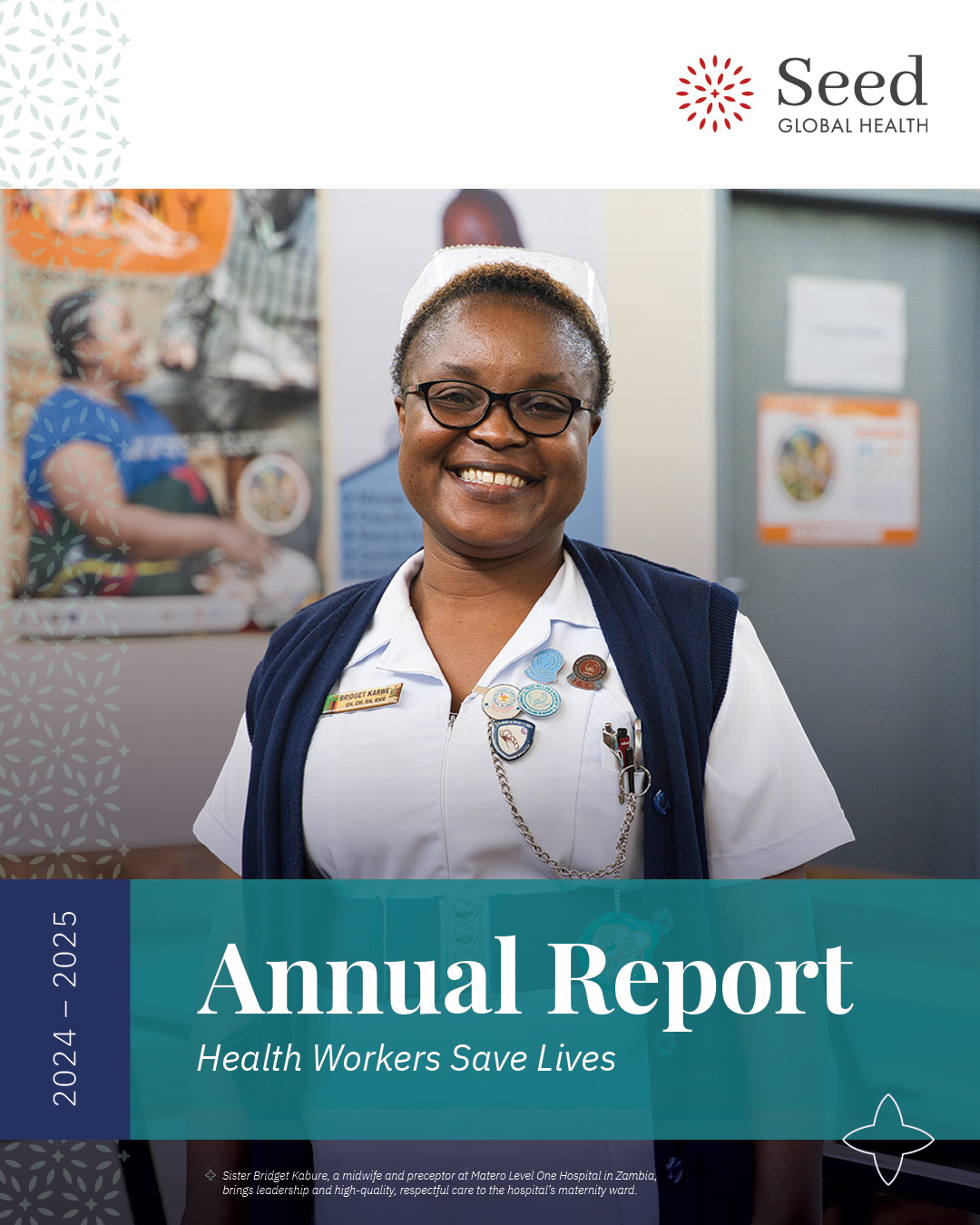Seed Global Health Uganda Launches Five-Year Country Strategy
On November 7, Seed Global Health (Seed) launched our 5-year Uganda strategy in Kampala. Seed supports two key areas in the country: emergency care and maternal, newborn, and child health. We do this by building human resource for health capacity through training doctors, nurses, and midwives.
Seed was honored to have vice chancellors from our partner institutions–Busitema University, Lira University, Makerere University, Mbarara University of Science and Technology, and Muni University–attend the event. The Minister of State for Primary Health Care Dr. Joyce Kaducu and U.S. Ambassador Deborah Malac as well as representatives from the Ministry of Health and the Ministry of Education and Sports were also in attendance.
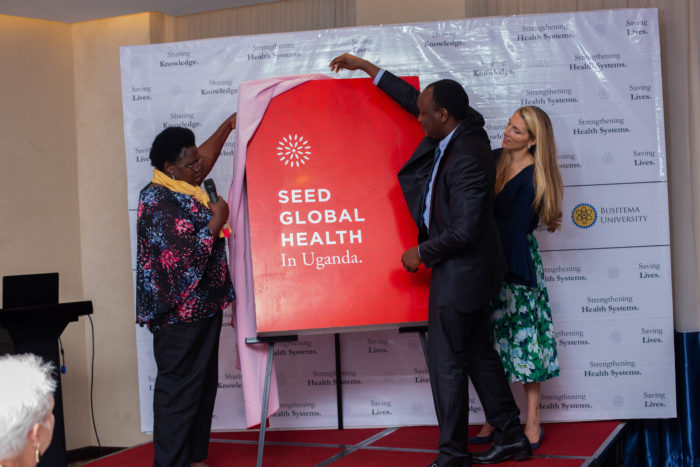
In her remarks, Honorable Kaducu applauded Seed for our renewed commitment and promise to continue supporting the government of Uganda in health systems strengthening.
“There is a rising burden of medical emergencies, noncommunicable diseases, and infectious diseases, and despite the government’s efforts to improve maternal and neonatal services, we still lose many mothers from preventable causes,” she said. “Seed’s partnership and contribution is timely and crucial especially now that the government of Uganda is prioritizing emergency care.” These increasing health challenges require a skilled and robust health workforce that can efficiently meet the needs of communities.
Honorable Kaducu appealed to the faculty heads of the different medical schools partnering with Seed to be great role models to students and instill professional ethics in them. “It is important to have health workers who appreciate and understand the magnitude of the role they play in the lives of all Ugandans,” she said.
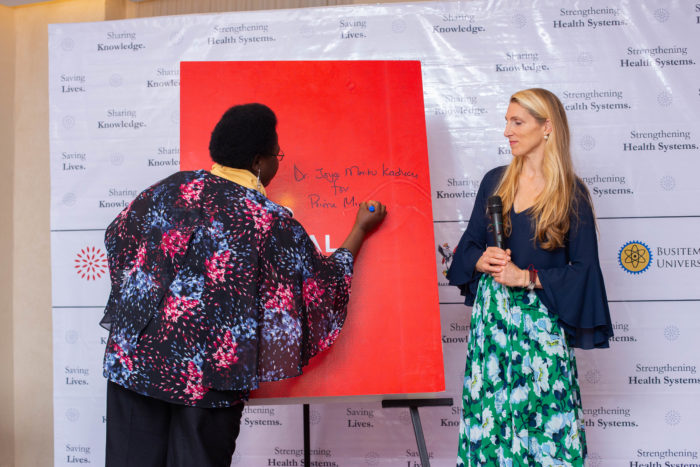
Ambassador Malac recognized the achievements that Seed, in partnership with the Peace Corps, has had in Uganda over the past five years. She promised to continue engaging with the Ministry of Health and the Ministry of Education in training health workers.
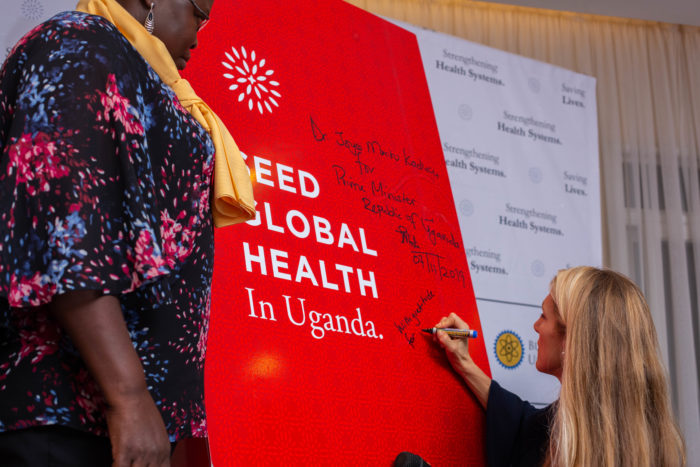
“Uganda is experiencing a shortage of over 25, 000 health workers,” said Robert Odok Oceng, the Director of Higher Education. “This highlights the dire need to train, recruit, and retain more health workers.” The healthcare workforce gap negatively impacts service delivery and results in unnecessary loss of life.
“I am pleased that Seed will continue to work alongside Ugandan partners to strengthen medical and nursing education capacity through the placement of physician and nurse educators at these partner universities,” he said. On behalf of the Ministry of Education and Sports and the government, Oceng pledged to support Seed as we continue to build and train the health workforce.
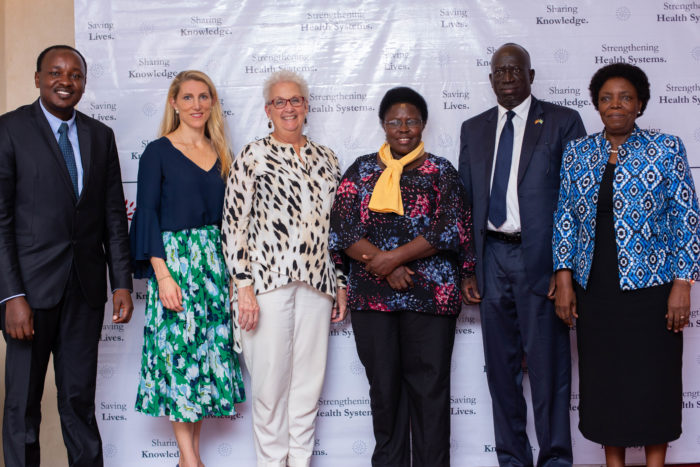
In his speech, our Uganda Country Director Dr. Bonaventure Ahaisibwe outlined Seed’s goal–to nurture the skills of health workers locally so that they can develop solutions to challenges in their communities.
